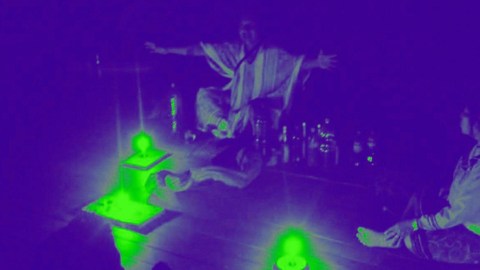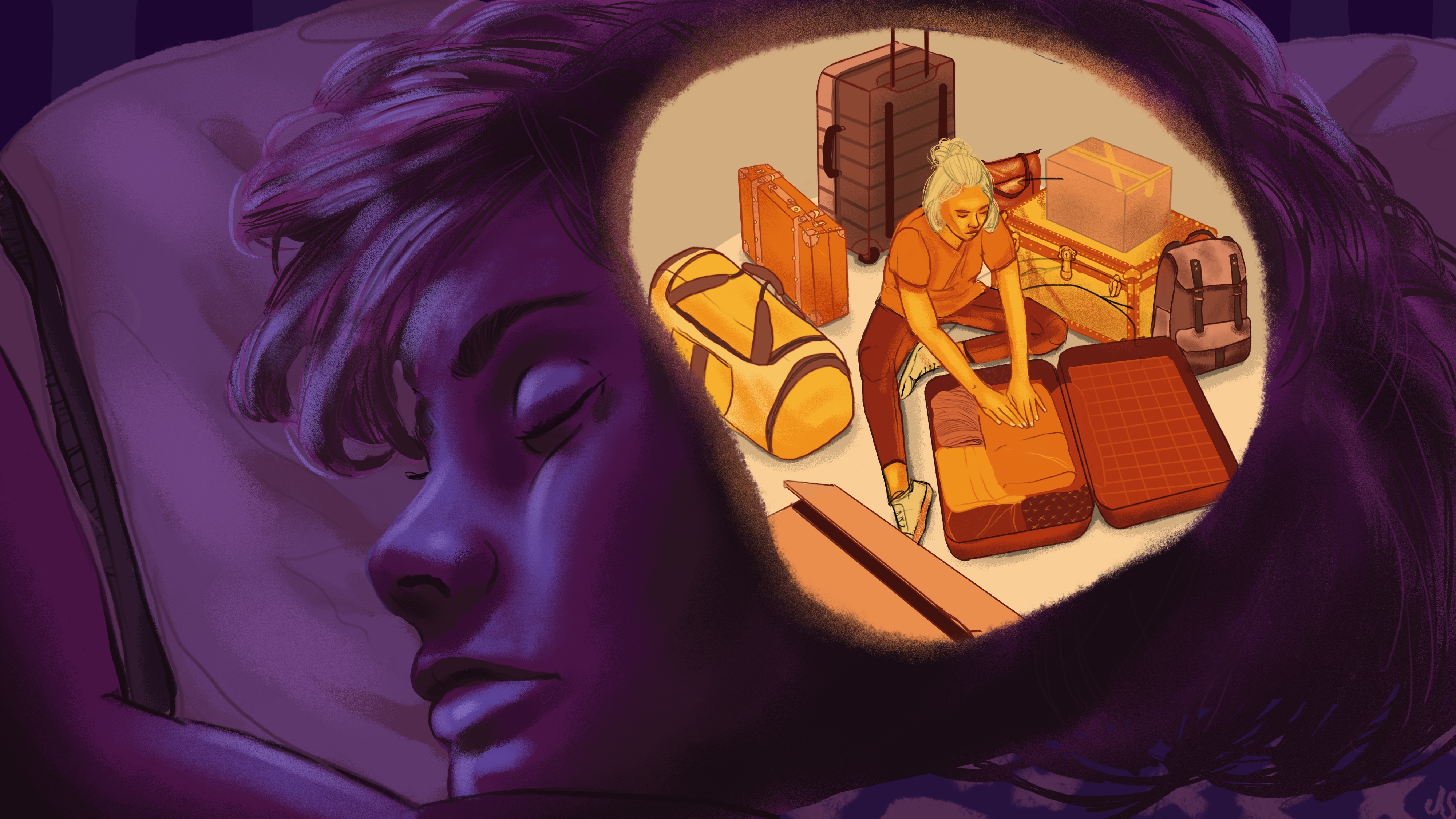Ayahuasca shows ‘promise’ in treating suicidal thoughts, researchers say

Photo credit: Fotoholica Press / Getty
- Ayahuasca is a psychedelic brew that’s been used by Amazonian tribes for centuries.
- Recent research suggests that ayahuasca might help reduce depression. The new study examined whether those effects might extend to suicidality.
- The results were mixed, but it seems ayahuasca shows some potential as a suicide intervention.
The psychedelic brew ayahuasca might show promise in the treatment of suicidality, the results of a new study suggest.
Ayahuasca — commonly made from the leaves of the Psychotria viridis shrub and stalks of the Banisteriopsis caapi vine — has been used for centuries by Amazonian tribes as a spiritual medicine. It can cause intense, hours-long psychedelic experiences that have been described in countless ways, from life-changing to psychologically-distressing. In recent years, “ayahuasca retreats” in countries such as Peru and Brazil have become popular among Westerners seeking spiritual healing.
More recently, scientists have begun exploring the potential therapeutic benefits of ayahuasca in the clinical setting, a development that comes as governments are relaxing regulations on experiments involving psychedelic drugs, like ketamine and psilocybin.
In 2018, for instance, a team of psychologists conducted the first randomized, placebo-controlled clinical trial of ayahuasca. The results, published in the journal Psychological Medicine, indicated that ayahuasca could, in fact, be effective in alleviating hard-to-treat depression.
In the new study, published in Frontiers in Pharmacology on November 19, the researchers wanted to test whether the drug had similar effects on reducing suicidality — one’s tendency to think about, show risk of, or plan suicide.
“Suicide is one of the leading causes of death, accounting for nearly 1,000,000 deaths each year,” study author Richard Zeifman, a Ph.D. student in Clinical Psychology at Ryerson University, told PsyPost. Zeifman added:
“Current interventions for suicidality have important limitations, which means there is a need for developing and identifying novel interventions for suicidality. Given this need, as well as research indicating that ayahuasca shows promise as an intervention for various mental health concerns (e.g., depression), we were interested in exploring whether the positive therapeutic effects of ayahuasca extended to suicidality.”
The team recruited 29 participants — all of whom had major depressive disorder (MDD) and had never tried psychedelic drugs — to ingest either ayahuasca or a placebo in a dimly lit room as they listened to a predetermined playlist of music. Then, suicidality among the participants was measured by a psychiatrist for a week after the ayahuasca session.
The results were mixed. Compared to the placebo group, the participants who took ayahuasca showed less suicidality at all points during the week after the session. However, the differences weren’t quite strong enough to be statistically significant. One explanation for the ambiguous results, besides the possibility that ayahuasca might not reduce suicidality, is that the team’s statistical analysis wasn’t able to detect significant effects — possibly because the sample size was too small.
In any case, the researchers said the findings suggest that ayahuasca shows “promise as a fast-acting and innovative intervention for suicidality.”
“Furthermore, within the ayahuasca group, we found large effect sizes for decreases in suicidality at all time points,” the researchers wrote. “These findings are in line with past research on the impact of psilocybin on suicidality and longitudinal research indicating that lifetime use of psychedelics is associated with reduced levels of suicidality and decreased risk of becoming suicidal.”
The authors stressed that their results are preliminary, and that further research is needed before ayahuasca can be considered as a standardized suicide intervention.
It’s worth noting the potential dangers of ayahuasca: Although anecdotal evidence suggests that ayahuasca might help people such as veterans reduce depression and symptoms of PTSD, there have also been cases of people committing suicide or experiencing mental health problems after taking ayahuasca.
A ‘thirst for wholeness’
But it’s possible these problems stem from people using the drug irresponsibly, as Rev. Dr. Jessica Rochester, founder of Céu do Montreal, a Canadian church that uses ayahuasca in spiritual ceremonies, told the Montreal Gazette.
“What has been happening is something called ayahuasca tourism. Unfortunately, with the world of the internet and people posting things saying, ‘I went here once and healed my whole life,’ (ayahuasca) has been sensationalized.”
“On the other side, there have been tragic accidents where people either met death or caused harm. Our condolences go out to the individuals, families and friends for their losses, which would have been preventable if people would have taken simple precautions.”
Rochester said ayahuasca improved her life.
“A lot of my experiences contributed to my understanding of myself, and of reality,” she said. “I was simply following what my heart called me into. I can’t say I was looking for anything in particular, but I like what Carl Jung wrote to Bill Wilson about a ‘thirst for wholeness.’
“It’s what’s driving Western civilization, and is the cornerstone of a lot of my early academic work and my work as a health and wellness counsellor, which I have been for years.”





